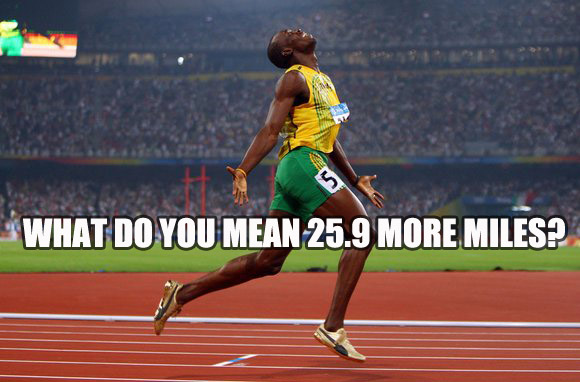A goal is a dream with a deadline. – Napolean Hill
In Part 1 of Setting Goals & Milestones we spoke about choices and goal-setting. You can’t do everything so you need to make hard choices about which dreams to follow. Once you know which dreams are important, let’s put a deadline on those dreams.
Setting a Goal Deadline
Way to often our goals are written “bucket list” style. That means we want to accomplish something or go somewhere before we die. While those type of life goals are important, it’s far more important to your immediate success and happiness to have goals with deadlines.
Let’s take an example I commonly use: weight loss. If you say “I want to lose 50 pounds” – that’s a great goal. But it doesn’t have a timeline or a deadline. If you lose 1 pound a year for the next 50 years, you’ll achieve that goal. But your quality of life will not be nearly the same as if you lost 1 pound per week for the next year and lived 49 years with a healthier lifestyle. In fact, only one of those two options will likely give you another 50 years to live.
When you set a deadline you are creating a fictional but important line in the sand that tells you where you should be. Sometimes you’re guessing, like when you estimate business revenue. “I’d like to be at $250k by Dec 31st.” If you are in your first few years, guessing those type of revenue numbers is sometimes impossible. You can’t see the future. If you were preparing a live video platform last year and Meerkat and Periscope beat you to the market and took all your media coverage, you probably wouldn’t have hit your target numbers. But if you ARE Meerkat, you likely blew expectations out of the water. So a goal may not be accurate but it should be set with your best intentions and closest estimations.
Deadline Reality: Breaking Up Goals
There are two ways goals can motivate you – from the start and at the end. Goals motivate you at the start because you are chasing your dream. You have a figure in mind that it would be “really nice” to achieve but it’s so far away that over the course of the year you may lose your path.
Set a realistic but challenging deadline. You may be able to lose 50 pounds in a year but you can’t lose 250. You may be able to double revenues from last year but you are unlikely in most cases to grow them by 100x.
If you find you often hit your goals, try stretching further. If you find you never hit them, give yourself more realistic targets. Don’t forget to break your goals up into smaller timeframes as well. Don’t just set a target for the year. What are the intermediate goals that help push you along? $250k for the year? Well you may want to do 60k per quarter with a strong push at the end. Or you may think 50/60/70/80k per quarter is more realistic as growth kicks in.
Closing in on Goal Deadlines
The second way goals help is to pull you toward the finish line. When you get to the last quarter and need $65k to hit that $250k target, you’re going to feel more motivated to put up big numbers and smash through your finish line. Similarly, when runners finish a race they can often accelerate in the last 1-2 miles and finish strong.
In this way, having a deadline will help you. If you ask a professional runner of any level to go “run as fast as they can” they’re going to ask about the distance. You will pace yourself extremely different for a 100m dash compared with a marathon. You should do the same with your business. Pace yourself for a sprint and set sprint goals but pace yourself for a marathon for the long-term goals. There’s no point trying to go out and sell a year’s worth of merchandise tomorrow if your business doesn’t work in that type of volume.
If you pace yourself for a sprint but run a marathon, you’re going to burn out. Imagine Usain Bolt running his best 100m dash and trying to follow that up with 26 more miles. Burn out is very bad for your goals and you don’t want to get there. So set the appropriate pace. (Going back to my workout example – many new gymgoers in this new year will go from zero days a week to seven days a week at the gym. They’ll quickly burn out and by February, only the regulars will still be there. It happens every year.)
Similarly, if you pace yourself too slow, you won’t achieve much. If you set off on a leisurely jog but the race is only 100 meters, you’re going to have lots of energy left at the end but you won’t really hit any challenging goals. This is similar to my 50 pounds in 50 years example, above.
Conclusion
Last time I told you that you’d have to make hard choices. This time I said you need to put timelines on those choices/goals. Next time we’re going to talk about NOT setting goals or planning for the year ahead.
We’re one week into the new year. Hope you’re enjoying the new posts & don’t forget to subscribe below!
[et_bloom_inline optin_id=optin_3]



